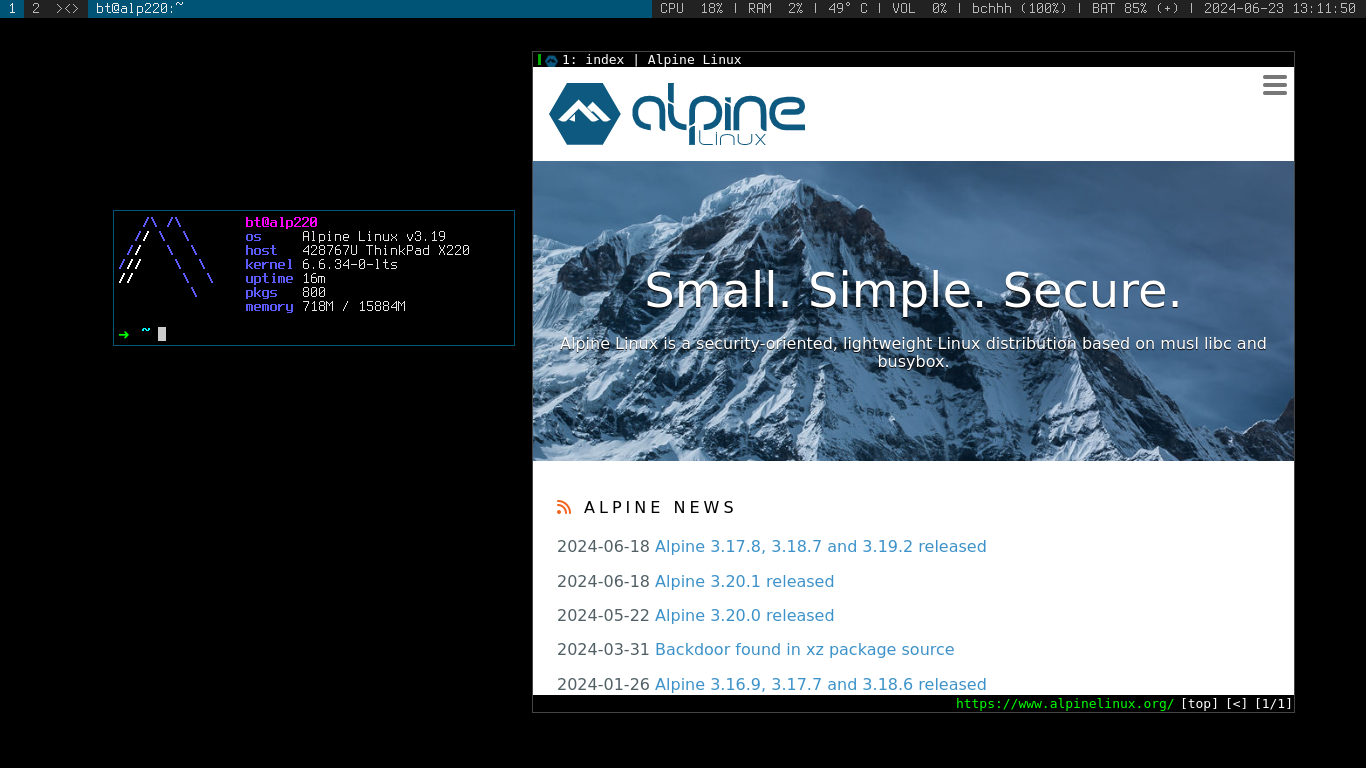Alpine Suck
Lightweight Desktop installer for Alpine Linux based on the suckless philosophy.

Includes my own custom set of suckless tools (dwm, slstatus, dmenu, etc.). Ships with my personal vim and kitty configs.
What You Get
The Open Suck installer gives you the absolute barebones desktop experience:
dwmfor window managementkittyfor default terminal emulatorlffor your file browserfirefoxas your core web browseraercfor your terminal-based mail clientslockfor screen lockingscrot/slopfor simple screenshot utilitiesfehfor your image/file viewingdunstfor notifications
Downloading
- Download the latest Alpine image
- Run
setup-alpine - Run
setup-xorg-base - Enable community/edge/testing repos
- Install git, vim & doas (doas is better than sudo!)
- Edit doas permissions (
/etc/doas.conf):
permit nopass :wheel
After finishing the above, create a user:
adduser -g "Real Name" username
Then add them to all required groups (wheel,users,audio,video,cdrom,input,tty):
adduser username wheel
Then logout of root user.
Login as your newly created user and run the following:
git clone https://git.btxx.org/alpine-suck
cd alpine-suck
Installing
- Install dependencies
- Compile and install suckless software
TLDR
Warning: Change the $ALPINE_USER variable inside install-dependencies.sh to match that of your current
user.
$ALPINE_USER="bt"
Then continue...
cd alpine-suck # CD into this repository
doas sh ./install-dependencies.sh # Install alpine packages
Give that some time. Once it is complete, run install.sh to build the suckless programs:
doas sh ./install.sh # Build & install everything
Reboot the machine. Log in as your main user. Run:
startx
Possible Tweaks / Troubleshooting
You might need to check /proc/asound/cards to see which sound cards are available to your system. Then, if needed, you should create a /etc/asound.conf file with the following inside (where the "1" is your desired card number):
defaults.pcm.card 1
defaults.ctl.card 1
This will take on the next reboot of the machine.
